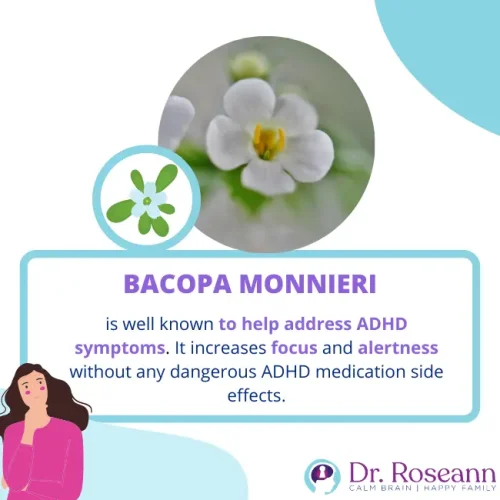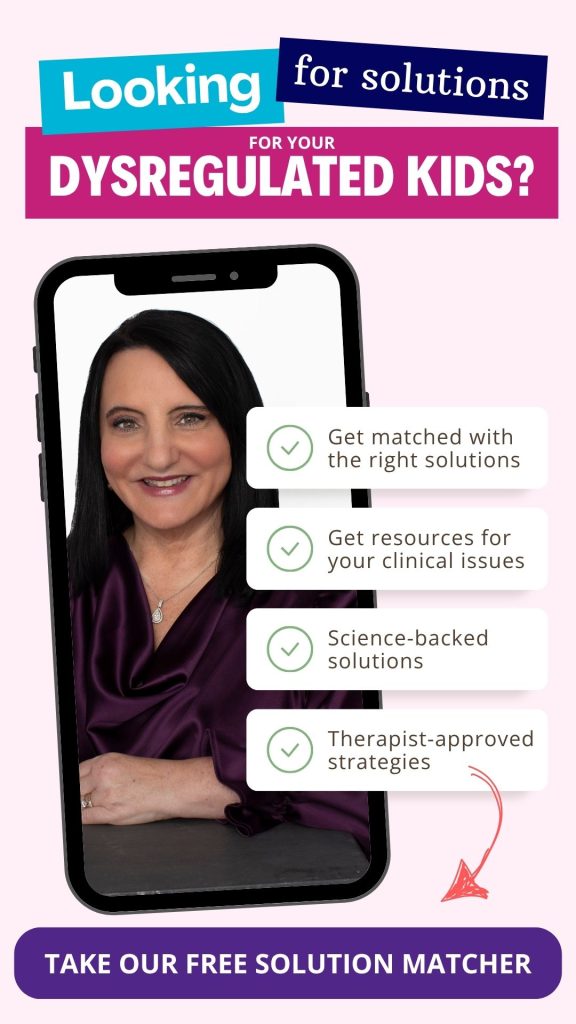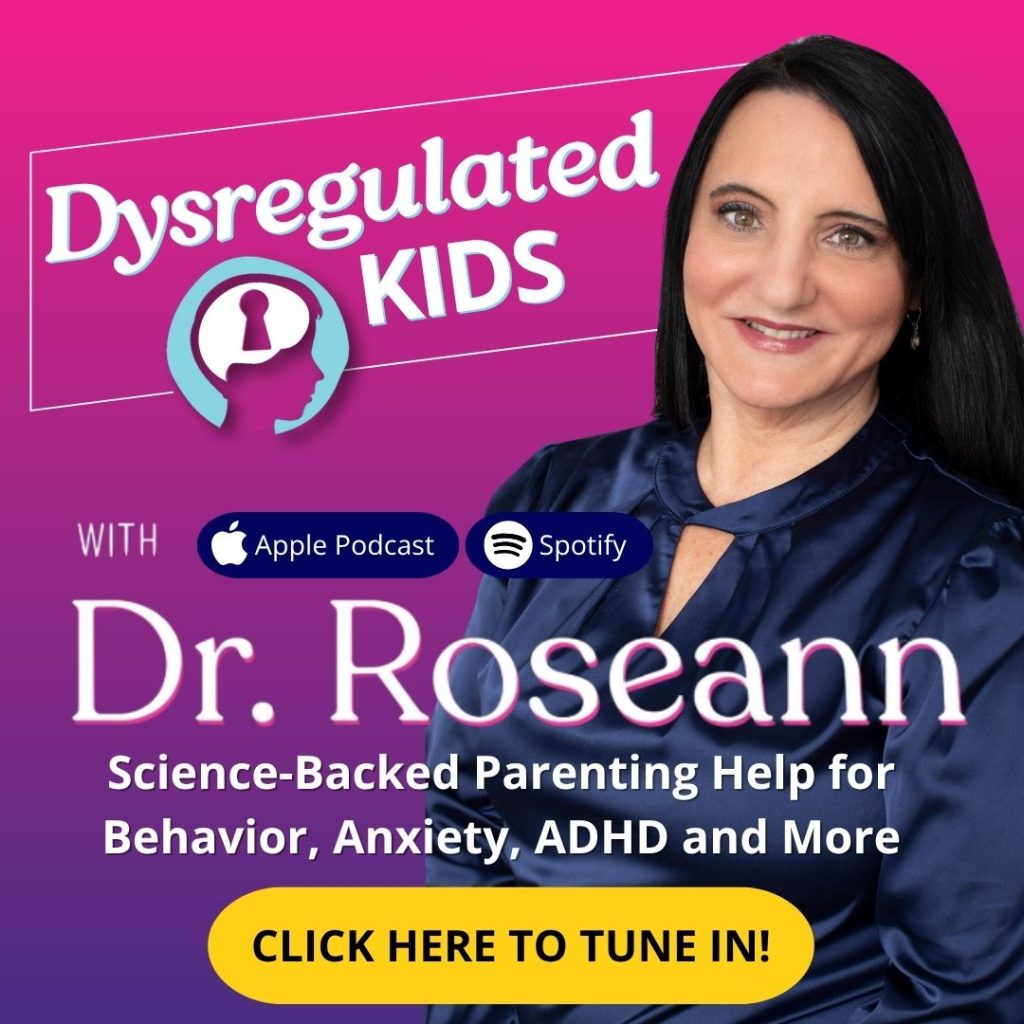Estimated reading time: 7 minutes
If your child’s spark feels dim, you’re not alone. What looks like laziness is often a dysregulated or under-fueled brain asking for help. In this guide, we’ll unpack the science of vitamins for motivation, why kids struggle, and natural ways to calm the brain so energy, focus, and mood can shine again.
How Does Dopamine Affect Motivation in Children?
Motivation doesn’t just come from attitude—it begins in the brain. Dopamine is like fuel for your child’s engine: when levels run low, kids sputter. When balanced, it helps them focus, remember, and stay engaged.
Research shows dopamine drives learning, memory, and curiosity (Slutsky et al., 2010).
- It also powers executive skills like planning, organizing, and finishing tasks.
- But when dopamine dips, kids can feel scattered—like a backpack spilling open (Arnsten & Pliszka, 2011).
If your child struggles with focus or follow-through, it isn’t about laziness. It’s a brain running low on fuel.
The good news? Parents can support dopamine naturally with simple daily habits:
- Regular movement and play
- Restful, consistent sleep
- Time outdoors in natural light
Boosting dopamine isn’t just about brain chemistry—it’s about calming the nervous system so kids can thrive at school, at home, and in life.
How Can You Increase Dopamine Naturally in Kids?
When dopamine dips, kids can feel like their spark just won’t catch. Mood gets shaky. Focus drifts. Motivation stalls.
To parents, it may look like laziness, but what you’re really seeing is a brain that feels underpowered. Remember—what looks like behavior is often brain dysregulation.
Here’s the hopeful part: you can help refuel that engine. Everyday choices can nudge dopamine upward and give kids more steady energy. Think of it as charging their internal battery with simple habits that calm the brain and build resilience.
Simple ways to boost dopamine include:
1. Nourishing foods
- bananas
- apples
- leafy greens
- fish
- eggs
- almonds
- sunflower seeds
2. Movement
- cycling
- running
- strength training
3. Other daily habits
- Restorative sleep to steady brain chemistry
- Sunlight and time outdoors to lift mood and focus
- Mind-body practices like yoga or meditation
- Hydration for steady brain function
By weaving these habits into family life, you’re not just fueling brain chemistry—you’re calming the nervous system so your child can find their focus, energy, and spark again.
What Causes Low Motivation in Children?
Motivation struggles rarely come from laziness—they’re almost always clues about what’s happening inside your child’s brain and body.
Common root causes include:
- A nervous system stuck in ‘fight, flight, or freeze’
- Nutrient gaps
- low B vitamins
- magnesium
- omega-3s
- Neuroinflammation that dulls focus and mood
- Chronic stress, poor sleep, or weak routines
Remember: behavior is communication. When kids look unmotivated, their brain may be saying, ‘I’m running on empty.’
The hopeful part? With the right support, you can calm and regulate their system—so motivation and focus can come back online.
Vitamins Really Improve Motivation in Kids?
When motivation struggles trace back to nutrient gaps or brain chemistry imbalances, vitamins can help more than you might expect. They aren’t a quick-fix pill—but steady fuel for a tired engine.
Instead of flipping a switch overnight, they give the brain the raw materials it desperately needs to:
- Build neurotransmitters like dopamine, serotonin, and GABA
- Regulate energy while steadying mood swings
- Support recovery from daily stress and sharpen attention
And here’s the key: when combined with healthy routines and co-regulation from parents, vitamins don’t just fuel motivation—they help calm the brain so focus and resilience can take root.
What Are the Best Vitamins for Motivation and Focus?
Some vitamins quietly fuel motivation and focus in kids. When levels drop, moods swing, attention drifts, and follow-through falls apart.
1. B Vitamins (B6, B12, Folate)
- Build neurotransmitters like serotonin and dopamine—the brain’s drive and reward messengers
- Provide steady energy so tasks feel manageable
- B6 especially helps ease sudden mood storms
Parent Story:
Mildred, mom of a lively 9-year-old with anxiety, felt stuck. Homework time always ended in tears and scattered energy.
Testing showed her daughter was low in B6 and B12. With gentle supplementation, meltdowns eased and focus sharpened. Sometimes a missing nutrient really does unlock the calm.
Research backs this up: Venkatramanan et al. (2016) found that B vitamins sharpen cognitive performance, while B12 specifically fuels healthy brain development in children.
2. Vitamin D
- Balances mood and restores energy that fades too quickly
- Deficiency is common in kids who spend most of their time indoors
- Shortages may alter brain health, increasing risk for anxiety, depression, and social struggles (Moradi et al., 2018)
When these nutrients are topped up, parents often say, “Wow, my child feels lighter.” Focus sharpens, moods smooth out, and motivation comes back online. Think of it as giving your child’s brain a tune-up so it can run without stalling.
And remember—what looks like laziness is usually brain dysregulation. Calm the brain first, and everything else follows.
Best Supplements to Boost Motivation and Mood
Some nutrients—sometimes called nootropics—act like jumper cables for a tired brain. They won’t replace sleep, connection, or daily regulation habits, but research shows they can fuel creativity, sharpen focus, steady memory, and even spark motivation (Suliman et al., 2016).
For kids who ride waves of mood swings or struggle to follow through, these nutrients may offer a gentle but powerful lift for their nervous system.
1. Magnesium
- Often called the “calm mineral”
- Works quietly behind the scenes, helping body and mind reset
- Think of it as the brain’s nightly maintenance crew
- Steadies stress responses
- Encourages deeper and restorative sleep
- Supports memory and learning (Slutsky et al., 2010)

Mousain-Bosc et al. (2006) observed that children with ADHD who received magnesium along with B vitamins for eight weeks showed calmer behavior, reduced aggression, and better attention in school.
That’s a lot of change from such an understated mineral. This goes to show that sometimes the smallest shift creates the biggest ripple.
2. L-Tyrosine
This amino acid is raw fuel for neurotransmitters like dopamine and norepinephrine—both key drivers of motivation and mental clarity. When kids feel foggy or worn down, L-tyrosine can give their system a lift.
- Restores motivation after stress or fatigue drains reserves
- Boosts alertness and follow-through on tasks
- Helps regulate mood swings
One study by Arnold et al. (2003) shows that children with autism who followed gluten- and casein-free diets often had lower levels of tyrosine and tryptophan, both essential for making neurotransmitters. Without those building blocks, energy sputters like a car running on fumes.
Pairing L-tyrosine with magnesium often strengthens the effect, giving kids both sharper focus and steadier moods.
Remember: what looks like ‘laziness’ is almost always brain dysregulation. Calm the brain first, and motivation naturally follows.
Can Herbs Really Boost Energy and Motivation?
Parents ask me this all the time—can herbs really give kids that extra push when they feel drained or scatterbrained?
While no plant replaces a nutrient, research shows many herbs act like quiet helpers for the nervous system. Think of them as gentle nudges that restore balance while sharpening focus.
Here are a few that science keeps pointing back to:
1. Rhodiola Rosea
Often called the “golden root,” Rhodiola has been used for centuries to lift stamina and endurance.
- Helps reduce fatigue and stress
- May lift mood and motivation
- Supports focus and recall (Mao et al., 2015; Ma et al., 2018)
2. Ginkgo Biloba
Packed with protective flavonoids, ginkgo strengthens blood flow to brain tissue.
- Enhances circulation to the brain
- Improves memory and alertness
- Supports long-term brain vitality (Blecharz-Klin et al., 2009)
3. Bacopa Monnieri
Long used in Ayurvedic medicine, Bacopa shows promise for learning and recall. Families often explore it for ADHD-related focus struggles.
- Improves learning and processing speed
- Sharpens attention without stimulant side effects
Helps lower stress and cortisol (Stough et al., 2001)

4. Panax Ginseng
Known worldwide as a fatigue fighter, ginseng helps restore mood and cognition.
- Reduces fatigue and brain fog
- Stabilizes mood under stress
- Enhances problem-solving and concentration (Jin et al., 2019; Reay et al., 2010)
5. Green Tea
Beyond heart health, green tea offers calm alertness. Many teens notice they feel more awake without feeling jittery.
- Provides natural brain-boosting antioxidants
- Improves memory and attention span
- Encourages steady, calm energy (Martins et al., 2017)
6. Lion’s Mane Mushroom
This mushroom works differently—it supports nerve growth while lifting mood.
- Encourages nerve regeneration
- Strengthens executive functioning
- May reduce anxiety and depression (Chou et al., 2022)
5. Mucuna Pruriens
Sometimes nicknamed the “dopamine bean,” Mucuna naturally raises dopamine levels. Parents often notice more motivation and resilience.
- Increases dopamine for better drive
- Builds emotional resilience
- Helps regulate cortisol in tough times (Galani & Rana, 2014)
Herbs can be wonderful allies, but they aren’t magic bullets. Every child’s nervous system dances to its own rhythm, so what lifts one may barely touch another. Always check in with a provider before adding new supplements.
And remember—behavior is communication. Low energy or lack of drive often signals a brain running on empty. Calm the brain first, and everything else follows.
Supplements That Support Mood, Energy, and Brain Health
Some natural supplements work alongside vitamins to spark motivation. They don’t replace sleep, connection, or daily regulation habits—but they can gently calm the brain and build stress resilience. These quiet supports help steady mood and sharpen focus.
| Inositol (B8) | Helps quiet racing thoughts and obsessive patterns |
| Zinc | Teams up with B6 to balance dopamine and serotonin |
| Probiotics | Strengthen the gut-brain connection for more stable moods |
| L-Theanine (from green tea) | Promotes calm alertness without making kids groggy |
Case Example:
Marcus, age 12, dreaded homework while his parents dreaded the nightly tug-of-war. Every worksheet turned into a battle. Under professional guidance, they added omega-3s and magnesium.
Within weeks, his energy evened out. He surprised his parents by starting assignments with less pushback and showing pockets of focus that felt new.
Small shifts can lead to big wins. What looked like defiance was really brain dysregulation—and once his brain was calmer, motivation followed.
How to Know if Your Child Needs Supplements
Watch for these signs that may point to nutrient gaps—not laziness or bad behavior, but a brain running low on fuel:
- Constant fatigue or low drive
- Trouble starting or finishing tasks
- Irritability, mood swings, or anxiety
- Focus struggles even with support
- Frequent illness or poor stress recovery
Tip: You don’t have to guess. Testing can confirm deficiencies, and working with a provider ensures safe, effective dosing.
Remember—behavior is communication, and sometimes it’s the brain’s way of saying, ‘I need more support.’
Lifestyle Changes That Boost Motivation Alongside Vitamins
Vitamins work best when paired with daily regulation habits that fuel a calmer brain:
- 9–12 hours of restorative sleep
- Protein at each meal
- Daily movement to reset the nervous system
- Limited screen time to reduce overstimulation
- Mind-body tools like deep breathing or co-regulation with you
A dysregulated, under-fueled brain isn’t lazy—it’s overloaded. With the right supports, your child can regain their spark and confidence. Calm the brain first, and everything else follows.
Parent Action Steps
FAQs
Can I give my child adult supplements?
Not always. Kids need doses tailored to their age and size. Some adult supplements may be too strong or contain ingredients not meant for children. Always check with your provider before starting anything new.
What’s the safest starting point?
Many parents begin with omega-3s or magnesium, since they’re well-studied and often safe for kids. Still, every child is unique, and testing helps confirm what’s really needed instead of guessing.
Do picky eaters need supplements?
Often, yes. Limited diets can miss key nutrients like B vitamins, iron, and zinc. Supplements can help fill gaps, but it’s important to pair them with gentle efforts to expand food variety over time.
Citations
Arnold, G. L., Hyman, S. L., Mooney, R. A., & Kirby, R. S. (2003). Plasma Amino Acids Profiles in Children with Autism: Potential Risk of Nutritional Deficiencies. Journal of Autism and Developmental Disorders, 33(4), 449–454. https://doi.org/10.1023/a:1025071014191
Arnsten, A. F. T., t& Pliszka, S. R. (2011). Catecholamine influences on prefrontal cortical function: Relevance to the treatment of attention-deficit/hyperactivity disorder and related disorders. Pharmacology Biochemistry and Behavior, 99(2), 211–216. https://doi.org/10.1016/j.pbb.2011.01.020
Blecharz-Klin, K., Piechal, A., Joniec, I., Pyrzanowska, J., & Widy-Tyszkiewicz, E. (2009). Pharmacological and biochemical effects of Ginkgo biloba extract on learning, memory consolidation and motor activity in old rats. Acta Neurobiologiae Experimentalis, 69(2), 217–231. https://pubmed.ncbi.nlm.nih.gov/19593336/
Chou, M.-Y., Ho, J.-H., Huang, M.-J., Chen, Y.-J., Yang, M.-D., Lin, L.-H., Chi, C.-H., Yeh, C.-H., Tsao, T.-Y., Tzeng, J.-K., Hsu, R. J., Huang, P.-H., Lu, W.-C., Li, P.-H., & Wang, M.-F. (2022). Potential antidepressant effects of a dietary supplement from the chlorella and lion’s mane mushroom complex in aged SAMP8 mice. Frontiers in Nutrition, 9. https://doi.org/10.3389/fnut.2022.977287
Galani, V., & Rana, D. (2014). Dopamine mediated antidepressant effect of Mucuna pruriens seeds in various experimental models of depression. AYU (an International Quarterly Journal of Research in Ayurveda), 35(1), 90. https://doi.org/10.4103/0974-8520.141949
Jin, Y., Cui, R., Zhao, L., Fan, J., & Li, B. (2019). Mechanisms of Panax ginseng action as an antidepressant. Cell Proliferation, 52(6). https://doi.org/10.1111/cpr.12696
Ma, G.-P., Zheng, Q., Xu, M.-B., Zhou, X.-L., Lu, L., Li, Z.-X., & Zheng, G.-Q. (2018). Rhodiola rosea L. Improves Learning and Memory Function: Preclinical Evidence and Possible Mechanisms. Frontiers in Pharmacology, 9, 1415. https://doi.org/10.3389/fphar.2018.01415
Mao, J. J., Xie, S. X., Zee, J., Soeller, I., Li, Q. S., Rockwell, K., & Amsterdam, J. D. (2015). Rhodiola rosea versus sertraline for major depressive disorder: A randomized placebo-controlled trial. Phytomedicine: International Journal of Phytotherapy and Phytopharmacology, 22(3), 394–399. https://doi.org/10.1016/j.phymed.2015.01.010
Martins, A., Schimidt, H. L., Garcia, A., Colletta Altermann, C. D., Santos, F. W., Carpes, F. P., da Silva, W. C., & Mello-Carpes, P. B. (2017). Supplementation with different teas from Camellia sinensis prevents memory deficits and hippocampus oxidative stress in ischemia-reperfusion. Neurochemistry International, 108, 287–295. https://doi.org/10.1016/j.neuint.2017.04.019
Moradi, H., Sohrabi, M., Taheri, H., Khodashenas, E., & Movahedi, A. (2018). The effects of different combinations of perceptual-motor exercises, music, and vitamin D supplementation on the nerve growth factor in children with high-functioning autism. Complementary Therapies in Clinical Practice, 31, 139–145. https://doi.org/10.1016/j.ctcp.2018.02.005
Reay, J. L., Scholey, A. B., & Kennedy, D. O. (2010). Panax ginseng (G115) improves aspects of working memory performance and subjective ratings of calmness in healthy young adults. Human Psychopharmacology: Clinical and Experimental, 25(6), 462–471. https://doi.org/10.1002/hup.1138
Slutsky, I., Abumaria, N., Wu, L.-J., Huang, C., Zhang, L., Li, B., Zhao, X., Govindarajan, A., Zhao, M.-G., Zhuo, M., Tonegawa, S., & Liu, G. (2010). Enhancement of Learning and Memory by Elevating Brain Magnesium. Neuron, 65(2), 165–177. https://doi.org/10.1016/j.neuron.2009.12.026
Stough, C., Lloyd, J., Clarke, J. et al. The chronic effects of an extract of Bacopa monniera (Brahmi) on cognitive function in healthy human subjects. Psychopharmacology 156, 481–484 (2001). https://doi.org/10.1007/s002130100815
Suliman, N. A., Mat Taib, C. N., Mohd Moklas, M. A., Adenan, M. I., Hidayat Baharuldin, M. T., & Basir, R. (2016). Establishing Natural Nootropics: Recent Molecular Enhancement Influenced by Natural Nootropic. Evidence-Based Complementary and Alternative Medicine, 2016, 1–12. https://doi.org/10.1155/2016/4391375
Venkatramanan, S., Armata, I. E., Strupp, B. J., & Finkelstein, J. L. (2016). Vitamin B-12 and Cognition in Children. Advances in Nutrition, 7(5), 879–888. https://doi.org/10.3945/an.115.012021
Always remember… “Calm Brain, Happy Family™”
Disclaimer: This article is not intended to give health advice and it is recommended to consult with a physician before beginning any new wellness regime. *The effectiveness of diagnosis and treatment varies by patient and condition. Dr. Roseann Capanna-Hodge, LLC does not guarantee certain results.
Are you looking for SOLUTIONS for your struggling child or teen?
Dr. Roseann and her team are all about science-backed solutions, so you are in the right place!










